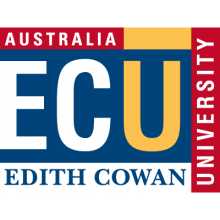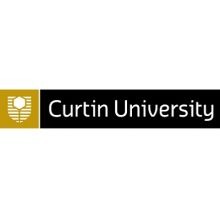Edith Cowan University (ECU) is the latest Australian institution to swap sprawling suburban digs for a vertical campus in the city, as it leverages its land to accommodate the needs of industry partners and the evolving tastes of students.
ECU has announced plans for a multi-storey “creative industries, business and technology” campus in the heart of Perth’s central business district and next door to its major transport hub. It will be built in the Perth City Link precinct connecting the city centre with the museums, galleries and theatres of inner city Northbridge.
“We will link the corporate world of the CBD with the cultural centre,” said vice-chancellor Steve Chapman. “People walking through won’t know if they’re in the city or the university. That’s what we want: no barrier to being part of the campus.”
The university is bankrolling almost half of the A$695 million (£393 million) project from its own resources. The federal government is contributing A$245 million through the City Deals programme, an urban renewal scheme gaining new impetus as a stimulus measure to support recovery from the coronavirus-induced recession.
The remaining A$150 million has been pledged as an in-kind contribution from the state government, which will provide the land in return for ECU’s Mt Lawley campus north of the CBD.
Mt Lawley offerings including the Western Australian Academy of Performing Arts (WAAPA) will be relocated to the city centre. The state government will find new purposes for the old campus, with some of the buildings inherited by a neighbouring senior school focused on the performing arts.
“It absolutely makes sense,” Professor Chapman said. The school would gain facilities and the university would avoid “substantial” expense upgrading the decades-old Mt Lawley site. Travelling time between ECU’s main campuses would be slashed, with the new centre sharing a train line with the university’s main campus at Joondalup in Perth’s north.
Meanwhile, the city centre would be rejuvenated with a cultural centre accommodating WAAPA, the Western Australian Screen Academy, a broadcasting centre and a piano museum, and hosting hundreds of performances a year.
Professor Chapman said there had been a longstanding desire to relocate WAAPA into the city centre. “That couldn’t happen because the students wouldn’t have the support infrastructure that a university provides – the library, counselling, advice centres. [This is a] comprehensive city campus with all the things you expect campuses to have.”
Two other Perth universities, Murdoch and Curtin, will also boost their city centre presences with the support of a A$360 million state government City Deals investment. Curtin will build a CBD knowledge and innovation precinct, while Murdoch will create a vertical campus featuring a digital futures academy and eSports hub.
Other Australian universities including La Trobe in Melbourne, Griffith in Brisbane and Flinders in Adelaide are pursuing campus redevelopments financed by the sale or repurposing of their land. Leading the trend is Western Sydney University, which has built or is building three high-rise campuses as part of a complete overhaul of its dispersed estate.
Professor Chapman said vertical campuses forced students and academics to mix much more with peers from different disciplines. “I think this is the way universities are going to be moving because it makes people network more,” he said. “People with very different outlooks and academic skills bump into each other every day.”
Register to continue
Why register?
- Registration is free and only takes a moment
- Once registered, you can read 3 articles a month
- Sign up for our newsletter
Subscribe
Or subscribe for unlimited access to:
- Unlimited access to news, views, insights & reviews
- Digital editions
- Digital access to THE’s university and college rankings analysis
Already registered or a current subscriber? Login












